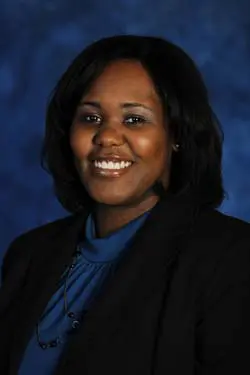RISE PERSPECTIVE
August 28, 2017
Perspective Taking Is Essential for Student Development, Learning
"A lot of people have now changed and have better perspectives of one another … because I know some people couldn't see from the African-American (view), some people couldn't see from the White person's (view). So I think (RISE) opens a lot of (pathways) to understanding."
— RISE student-athlete participant
By Courtney A. Gay

As part of my doctoral research, I had the opportunity to visit with several college student-athletes who participated in RISE educational programming.
As the student-athletes reflected on their experiences, a common sentiment among the group was that taking part in program activities and conversations with their peers helped them gain new viewpoints on issues surrounding race, diversity and inclusion.
Social justice educators, such as Dr. Ellen Broido, have identified perspective taking, or the ability to see situations from an alternate viewpoint, as an important component of the development and learning process for students as they seek to gain greater understanding of complex social issues such as racism.
Perspective taking enables individuals to gain greater insights into the experiences of others. As the student-athletes shared with me during our discussion, the broader perspective they gained through the RISE program resulted in an enhanced understanding of their peers, helped build new and/or stronger relationships and created a greater sense of camaraderie and community among the student-athletes. Perspective taking and its results as described above are important parts of the process of creating social change.
Helping student-athletes develop their perspective-taking skills is one of the key areas of emphasis of the RISE curriculum. Athletic staff, administrators and coaches also can assist student-athletes in this area of skill development in various ways, such as:
- Providing team- and community-building opportunities - It's important that student-athletes have a safe and comfortable environment as they seek to share their experiences and perspectives with one another. Team-building activities that help foster genuine, trusting relationships among student-athletes is an important part of creating such a space.
- Encouraging student-athletes to step outside their comfort zones - One of the many rewards of sports is that it brings together a diversity of individuals. Student-athletes who seek to engage with peers whose background and/or experiences may be different than their own will further develop their perspective-taking skills. Making an effort to get to know new teammates or teammates with whom they may not regularly interact, attending events with student-athletes from other sports and participating in community service activities are just a few ways student-athletes can broaden their perspective.
- Being encouraging … and resourceful - As students gain new perspectives, they may seek guidance from coaches, staff or other athletic personnel. Providing encouragement and/or helping direct student-athletes to appropriate resources is key in helping students feel they have a support system as they seek to grow.
One of the main purposes of my doctoral research has been to explore what student-athletes learn by participating in social justice education programs such as RISE. While I am still in the early phases of the project, one interesting occurrence has been that both student-athletes and athletic administrators have pointed out how participating in social justice education programs has helped student-athletes to improve their perspective-taking skills. In my career in collegiate athletic academic services, I also have witnessed how valuable and transformational participating in educational opportunities that provide an alternate viewpoint on an issue can be for student-athletes.
Based upon my educational and professional experiences working with student-athletes, I believe that perspective taking is essential to students' development and learning. Enhancing this skill set will help them be more effective leaders and engaged citizens during their collegiate years and beyond.
Courtney A. Gay is a doctoral candidate in the counseling and personnel services (college student affairs administration) program at the University of Georgia. She has worked with the NFL, NBA G League and Atlanta Braves, as well as in collegiate athletic academic services.
Our
Partners
Stay
In Touch
Follow us on social media.